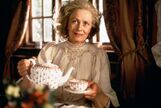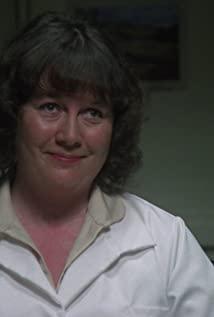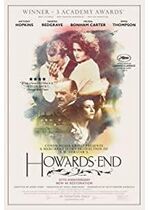-
Henry Wilcox: Don't take a sentimental attitude toward the poor.
[...]
Henry Wilcox: The poor are the poor. One is sorry for them, but there it is.
-
Aunt Juley: All the Schlegels are exceptional. They are British to the backbone, of course, but their father was German, which is why they care for literature and art.
-
Margaret Schlegel: [speaking of Helen] She's got some sort of madness... as if she's mad!
-
Helen Schlegel: Did you see the dawn?
Leonard Bast: Yes. It suddenly got light.
Helen Schlegel: And was it wonderful?
Leonard Bast: No.
[girls giggle]
-
Margaret Schlegel: Unlike the Greek, England has no true mythology. All we have are witches and fairies.
-
Helen Schlegel: We're not odd, we're just over-expressive.
-
Margaret Schlegel: I deny it's madness.
Henry Wilcox: But you said yourself...
Margaret Schlegel: It's madness when I say it, but not when you say it.
-
Margaret Schlegel: Will you forgive her as you yourself have been forgiven... you have had a mistress; I forgave you. My sister has a lover, you drive her from the house. Why can you not be honest for once in your life? Why can't you say what Helen has done, I have done!
-
Dolly Wilcox: [on Ruth's handwritten bequest of her house to Margaret] It's only in pencil! Pencil never counts.
-
Margaret Schlegel: [speaking of Helen] I think she may be a little... touched.
-
Margaret Schlegel: Mr. Wilcox, I am demented!
-
[last lines]
Margaret Schlegel: What did Dolly mean about Howards End?
Henry Wilcox: Mmmm? My poor Ruth, during her last days, scribbled your name on a piece of paper. Knowing her not to be herself, I set it aside. Didn't do wrong, did I?
-
Ruth Wilcox: My idea has always been that if we could bring the mothers of the various nations together, then there would be no more war.
-
Margaret Schlegel: I do wish you'd give us Howard's End.
-
[first lines]
Margaret Schlegel: [reading letter] Dearest Meg, I'm having a glorious time. I like them all. They are the very happiest, jolliest family that you can imagine. The fun of it is that they think me a noodle, and say so - at least, Mr. Wilcox does. Oh Meg, should we ever learn to talk less.
[laughing]
-
Helen Schlegel: [Leonard storms out after the Schlegel sisters try to warn him about his job] What was all that about?
Leonard Bast: I knew I shouldn't have come back. It was all right last time, but things like that always get spoiled.
Helen Schlegel: Things do, but people don't! Don't you understand? We really did want to warn you about the Porphyrion. We were worried about you!
Leonard Bast: ...why should you worry about me?
Helen Schlegel: Because we *like* you! That's why!... you absolute noodle.
Leonard Bast: [now awkward and ashamed] There's no need to call a person names...
Helen Schlegel: Oh yes there is, when a person is being tremendously stupid!
-
Margaret Schlegel: Henry, look at me. You were that woman's lover?
Henry Wilcox: Since you put it with your usual delicacy, yes I was.
Margaret Schlegel: When?
[no answer]
Margaret Schlegel: When, please?
Henry Wilcox: [angry] Ten years ago!
[calmer]
Henry Wilcox: I'm sorry. Ten years ago.
Margaret Schlegel: Henry, dear... it's not going to trouble us.
-
Henry Wilcox: You don't beat about the bush, do you?
Howards End Quotes
-
Antone 2022-03-25 09:01:16
I have only seen the disc in my impression, but I don't remember the previous film festival and film festival showing it on the big screen. What about on TV? Merchant-Ivory-Jhabvala's second Foster adaptation of the Iron Triangle (Jhabvala was not involved in writing "Morris"). Welcox-Schlegel-Bast is undoubtedly the three facets of the London bourgeoisie at the beginning of the last century, the vulgarity of new money, the intellectual women who have become financially independent not only love the humanities, but also begin to pay attention to social topics, while the middle and lower classes are often troubled by financial constraints. Whether citizens have the right to enjoy culture, but these are not enough~ The rhetoric, stylistic sense and audio-visual delicacy of the original text are the key to attracting people~ Of course, the four elements of "British flavor" cannot be missed: family, Wealth, snobbery, and more. . . Manor, hahaha~~
-
London 2022-03-19 09:01:07
Feminine consciousness and class criticism: Helen’s tit-for-tat confrontation with the owner of Howard Manor and the assistance of the lower-level intellectual Leonard show her sensitivity and resistance to social class opposition, and the fruitless love tragedy with Leonard is the inevitable social status disparity The ending; the differences in personality and behavior between Helen and her sister Margaret can be compared to Elizabeth and Jane in arrogance and prejudice, the conflict and tolerance between modernity and tradition.











